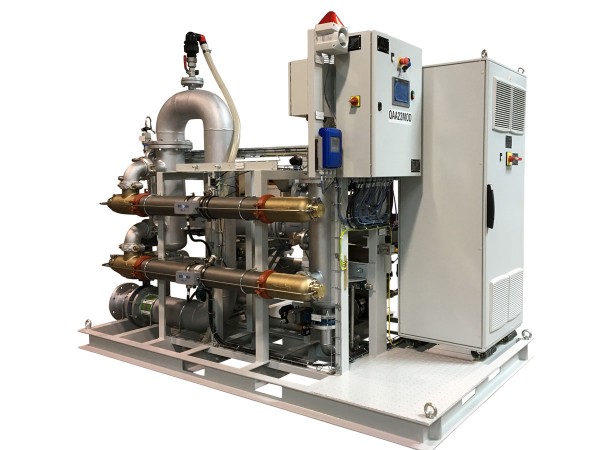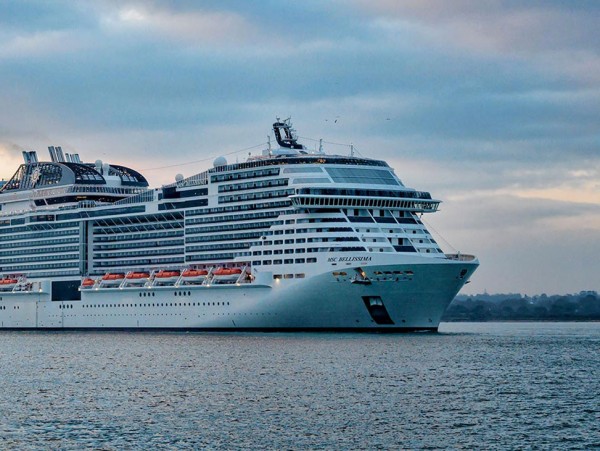Ultraviolet light water treatment pioneer BIO-UV Group has inked a contract to supply its BIO-SEA ballast water treatment system for installation aboard two Worldclass cruiseships currently under construction for MSC Cruises at the Chantiers de l’Atlantique shipyard at St. Nazaire, France.

The contract, which includes an option for an additional two World class vessels, represents the 5th and 6th BIO-SEA ballast water treatment systems ordered by the Swiss-Italian owner, the world’s largest privately-owned cruiseship operator.
They will each be fitted out with one BIO-SEA B02-0300 skid-mounted unit capable of treating ballast water flows of 300m3/h. The BIO-SEA skids will also feature an embedded power management cabinet for ease of operation.
Similar units will be supplied for installation to two new Meraviglia-class vessels, of which the most recent, MSC Bellissima, has just been delivered. In total four Meraviglia-class cruiseships operate the BIO-SEA system.
Benoît Gillmann, BIO-UV Group’s President and CEO, said: “We are delighted that MSC Cruises has again selected BIO-SEA for treating the ballast water aboard its new cruiseships. The order follows the success of the installation and operation of similar units aboard MSC’s Meraviglia-class of cruiseships. When the first 200,000gt Worldclass vessel enters service in 2022, it will be the largest cruiseship in the MSC fleet.”
In addition to MSC Cruises, another cruiseship owner to favour the BIO-SEA technology is RCCL-brand Celebrity Cruises. A 250m3/h flow rate capacity BIO-SEA unit has been selected for an additional three Edge-class vessels, also building at Chantiers de l’Atlantique. One unit is already in service aboard Celebrity Edge.

Xavier Deval, BIO-UV Group’s BIO-SEA Business Director, said: “MSC Cruises and RCCL have selected the BIO-SEA technology for its proven performance and user-friendly interface. BIO-SEA has the shortest holding time at full flow of any ballast water treatment system in the market. This is of primary importance for cruiseships as they visit a new port every day and consequently carry out ballasting/deballasting operations frequently.”










